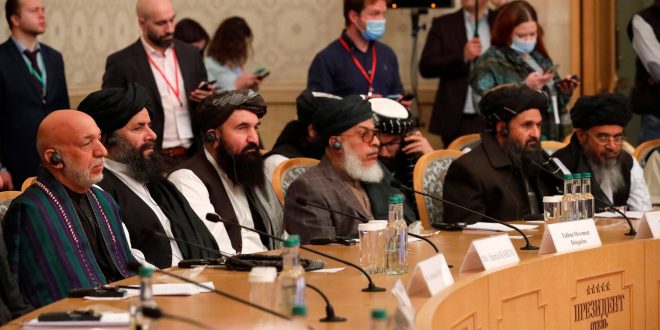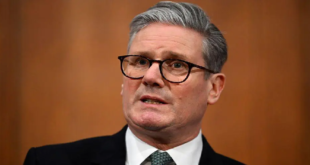19-03-2021
By SJA Jafri + Bureau Report + Agencies
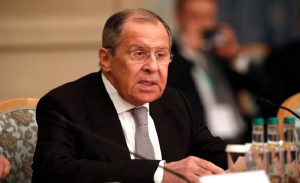 MOSCOW/ WASHINGTON/ BEIJING/ ISLAMABAD/ KABUL: The United States was joined by Russia, China and Pakistan on Thursday in calling on Afghanistan’s warring sides to reach an immediate ceasefire, at talks that showed Washington’s determination to win backing from regional powers for its plans.
MOSCOW/ WASHINGTON/ BEIJING/ ISLAMABAD/ KABUL: The United States was joined by Russia, China and Pakistan on Thursday in calling on Afghanistan’s warring sides to reach an immediate ceasefire, at talks that showed Washington’s determination to win backing from regional powers for its plans.
Just six weeks before a deadline for the US to pull out troops that have been in Afghanistan for nearly 20 years, Washington sent a senior official for the first time to participate in regional peace talks convened by Russia.
The Moscow talks were meant to breathe life into negotiations between the Afghan government and the Taliban in Qatar’s capital Doha, stalled over government accusations that the group has done too little to halt the violence.
“At this turning point, our four countries call on the sides to hold talks and reach a peace agreement that will end more than four decades of war in 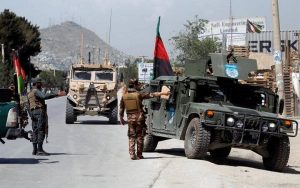 Afghanistan,” a joint statement said after the talks.
Afghanistan,” a joint statement said after the talks.
The statement called on the warring sides to curb violence and on the Taliban not to declare offensives in the coming months. It also said the four countries were committed to mobilizing political and economic support for Afghanistan once a peace settlement had been reached.
US seeks regional support
US special envoy for Afghanistan reconciliation Zalmay Khalilzad’s presence was a sign of Washington’s increasing effort to attract support among regional powers for its plans for the country.
President Joe Biden must soon decide whether to keep forces on past a May 1 deadline to withdraw, agreed with the Taliban last year under Biden’s 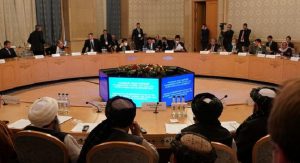 predecessor Donald Trump. Khalilzad has been trying to drum up backing for a proposal that includes an interim government.
predecessor Donald Trump. Khalilzad has been trying to drum up backing for a proposal that includes an interim government.
Moscow, which fought in Afghanistan in the 1980s, has hosted talks among Afghan sides and regional powers since 2017. Previously, Washington had largely kept its distance from the so-called “Moscow Format”, focusing on its own direct talks with the Taliban and talks between the Afghan parties themselves.
Russian Foreign Minister Sergei Lavrov urged the Afghan government and the Taliban to take a constructive stance and make compromises, adding that international participants should help create the necessary conditions for reaching a deal.
“The Afghan parties interested in the national reconciliation can reach peace 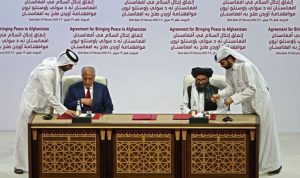 only through negotiations and compromises,” Lavrov said. “It’s important to sign an agreement that would serve the interests of all key ethnic and political forces of the country and determine the vector of its development.”
only through negotiations and compromises,” Lavrov said. “It’s important to sign an agreement that would serve the interests of all key ethnic and political forces of the country and determine the vector of its development.”
He emphasized that it was important to quickly reach a peace deal “amid the deteriorating military-political situation” before the summer when a surge in fighting is likely.
Afghan President Ashraf Ghani opposes an interim government, and a Taliban leader has said the group would not join it, although it supports replacing the current administration.
Abdullah Abdullah, chairman of Afghanistan’s High Council for National Reconciliation, wrote on Twitter after Thursday’s Moscow talks that the state negotiation team was ready to discuss any topic with the Taliban.
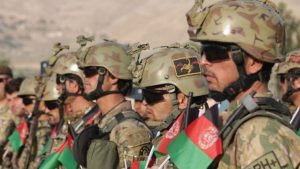 “We called for an end to targeted killings and a comprehensive ceasefire to begin the next rounds of the talks in a peaceful environment,” Abdullah wrote.
“We called for an end to targeted killings and a comprehensive ceasefire to begin the next rounds of the talks in a peaceful environment,” Abdullah wrote.
The Taliban’s deputy leader, Mullah Abdul Ghani Baradar, said in his speech in Moscow that the US has not fully completed its responsibilities of the agreement signed in February 2020. Among others, the remaining prisoners have not been released, he said.
The Moscow gathering will be followed by a meeting of regional players in Turkey next month and a summit that Khalilzad has asked the United Nations to organise.
The US’s longest war
The US has waged a war in Afghanistan for 20 years following the September 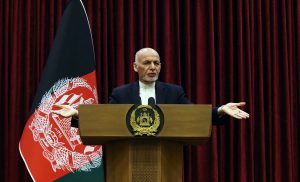 11, 2001 “terrorist attacks” masterminded by al-Qaeda leader Osama bin Laden from Afghanistan, making it their longest war but despite the US spending nearly $1 trillion, al-Qaeda is still present in Afghanistan, and an affiliate of the ISIL (ISIS) group has taken root in the east of the country.
11, 2001 “terrorist attacks” masterminded by al-Qaeda leader Osama bin Laden from Afghanistan, making it their longest war but despite the US spending nearly $1 trillion, al-Qaeda is still present in Afghanistan, and an affiliate of the ISIL (ISIS) group has taken root in the east of the country.
Many Afghans fear the withdrawal of US and NATO troops could lead to a surge in fighting between the country’s rival factions.
The Taliban now wants more prisoners released from Afghan jails and their leaders removed from the UN’s so-called blacklist.
The Taliban controls about half of the country and US Secretary of State Antony Blinken has warned that the group could make quick gains without US and NATO troops.
 Pressmediaofindia
Pressmediaofindia
